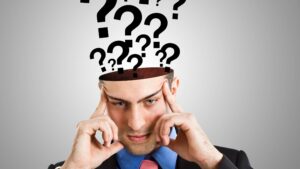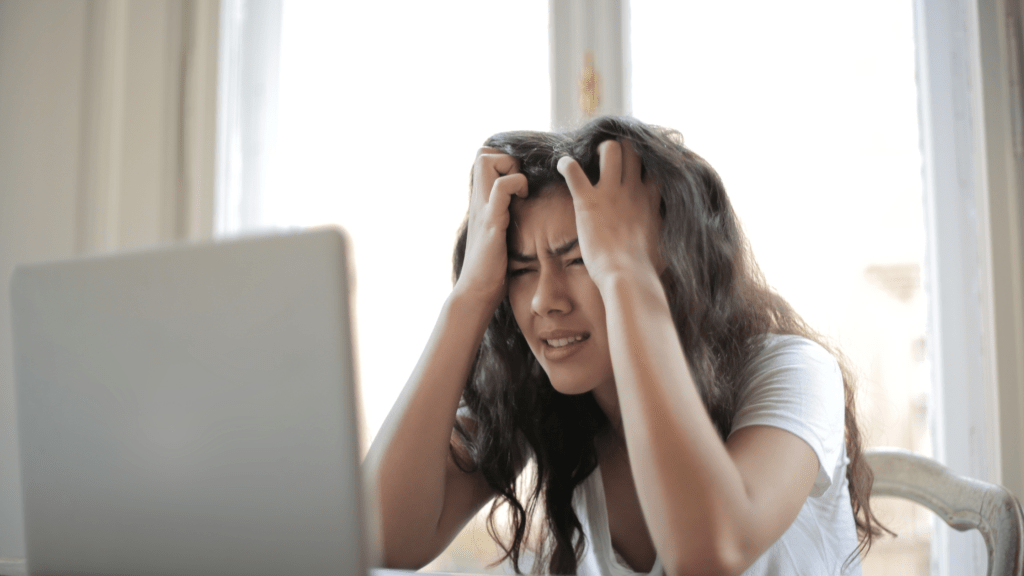Did you know that OCD and depression are often linked? In fact, many people who suffer from OCD also experience symptoms of depression. This can be a difficult combination to deal with. It is important to get treatment for both conditions if you are dealing with this dual diagnosis. In this blog post, we will discuss the connection between OCD and depression, as well as the symptoms and treatment options available.
Contents
- 1 What Does Depression Mean?
- 2 What Does OCD Mean?
- 3 What Are The Similarities Between OCD And Depression?
- 4 What Is Important About Having Depression And OCD Together?
- 5 What Are Some Common Causes Between OCD And Depression?
- 6 What Are The Differences Between OCD And Depression?
- 7 How Can Depression Make OCD Worse?
- 8 What Are The Ways To Cope With OCD And Depression?
- 9 Conclusion
What Does Depression Mean?

Depression is more than just feeling down or having a bad day. It’s a serious mental health condition that causes persistent feelings of sadness and loss of interest in activities you once enjoyed. Depression can interfere with your ability to work, study, eat, sleep, and enjoy life.
What Does OCD Mean?
OCD is an anxiety disorder that is characterized by obsessions and compulsions. Obsessions are intrusive thoughts, images, or impulses that cause anxiety or distress. Compulsions are repetitive behaviors or mental acts that a person feels compelled to do in order to relieve the anxiety caused by the obsessions. OCD affects people of all ages, but
What Are The Similarities Between OCD And Depression?

There are many similarities between OCD and depression.
Obsession
People with OCD are obsessed with certain thoughts, ideas, or images. These obsessions can be about anything, such as germs, dirt, violence, or religion. This obsession can cause a great deal of anxiety.
Compulsion
People with OCD often feel the need to perform certain rituals or behaviors in order to relieve their anxiety. These compulsions can be anything from handwashing to checking the locks on the door.
Negative Thoughts
People with OCD often have negative thoughts about themselves, their obsessions, or their compulsions. They may feel ashamed, guilty, or embarrassed about their behavior.
These are just a few of the similarities between these issues If you or someone you know is struggling with either disorder, please reach out for help. There are many resources available to you.
What Is Important About Having Depression And OCD Together?

There are a few key things to understand about having both depression and OCD:
Making Diagnosis Difficult
First, it is important to know that the two conditions share many symptoms. This can make diagnosis difficult, as it can be hard to determine which symptoms are associated with which condition.
Comorbidity Is Common
Secondly, comorbidity between depression and OCD is relatively common, meaning that many people who have one condition also have the other. Finally, treatment for comorbid depression and OCD can be complicated, as treating one condition may exacerbate the other.
If you think you may have both depression and OCD, it is important to seek professional help. A mental health professional will be able to assess your symptoms and provide an accurate diagnosis. Once you have a diagnosis, your mental health
What Are Some Common Causes Between OCD And Depression?

There are a number of common causes between OCD and depression. Some of these causes are as follows:
Chemical Imbalance
It is believed that a chemical imbalance in the brain may be one of the leading causes of OCD. This chemical imbalance can be caused by a number of things, including stress, diet, and even genetics.
Feelings Of Hopelessness And Despair
Depression is characterized by feelings of hopelessness, despair, and worthlessness. These same feelings can also be experienced by people with OCD. This is because OCD can cause a person to feel as though they are not good enough or that they will never be able to get better.
Lack Of Sleep
Another common symptom of these issues is insomnia, or the inability to sleep. This can be caused by a number of things, including stress, anxiety, and even the medications used to treat OCD.
These are some of the most common causes between OCD and depression. If you are experiencing any of these symptoms, it is important to seek help from a professional. Treatment for both of these issues is available and can be very effective. With treatment, you can learn how to manage your symptoms and live a happy, healthy life.
What Are The Differences Between OCD And Depression?

There are also many differences between OCD and depression.
Thoughts And behaviors Are Irrational
For example, people with OCD are usually aware that their thoughts and behaviors are irrational, but they cannot stop them. People with depression may not be aware that their negative thoughts and behaviors are irrational.
Intrusive Thoughts
People with OCD often experience intrusive thoughts, which are unwanted and disturbing thoughts, images, or impulses that repeatedly enter their minds. These thoughts can be about anything from germs and contamination to fear of harming oneself or others. People with depression may also experience intrusive thoughts, but these tend to be negative and self-critical, such as thoughts about being worthless or unlovable.
Loss Of Interest In Normal Activities
Another difference is that depression causes a loss of interest in normal activities, while OCD does not. People with OCD are often still interested in the things they normally enjoy, but their disorder prevents them from enjoying them as much as they used to.
These are some of the key differences between OCD and depression. If you think you may be experiencing either of these disorders, it’s important to talk to a mental health professional for an accurate diagnosis and treatment plan.
How Can Depression Make OCD Worse?
There are a few ways that depression can make OCD worse:
Increasing Anxiety Levels
One of the most common ways that OCD can make depression worse is by increasing anxiety levels. When someone suffers from OCD, they are constantly worried about their obsessions and compulsions. This can lead to high levels of anxiety, which can then trigger a depressive episode.
Interfering with Daily Activities
Another way that OCD can make depression worse is by interfering with daily activities. For example, if someone with OCD is obsessed with germs, they may avoid leaving their house for fear of contracting an illness. This avoidance can lead to feelings of loneliness and isolation, which can exacerbate depression.
Making it Difficult to Concentrate
Finally, OCD can also make it difficult to concentrate. Because sufferers are constantly thinking about their obsessions, they may have trouble focusing on work, school, or other important tasks. This can lead to a decline in productivity and an overall feeling of hopelessness.
If you or someone you know is struggling with these, it’s important to seek professional help. A qualified mental health professional can provide the necessary support and treatment to manage both conditions. With proper treatment, it is possible to live a happy and fulfilling life.
What Are The Ways To Cope With OCD And Depression?

There are many ways that people with OCD and depression can cope with their symptoms.
Medication
Some people with these issues may need medication to help them cope with their symptoms. This may include antidepressants, anti-anxiety medications, or other types of medication. You can talk to your doctor about what type of medication may be right for you.
Therapy
Another way to cope with OCD and depression is through therapy. There are many different types of therapy, but one type that can be helpful for people with OCD and depression is Cognitive Behavioral Therapy (CBT). CBT can help people learn how to change their thinking and behavior patterns.
Support Groups
Another way to cope with OCD and depression is by joining a support group. This can be a great way to meet other people who understand what you’re going through and can offer support and advice. You can find support groups online or in your community.
Self-Care
It’s also important to take care of yourself if you have OCD and depression. This may include exercise, relaxation techniques, and healthy eating. Taking care of yourself can help you feel better and cope with your symptoms.
If you or someone you know has OCD and depression, there are many resources available to help. There is no one “right” way to cope with OCD and depression, but these are some ways that may be helpful. Remember, if you’re feeling overwhelmed or hopeless, it’s important to seek professional help.
Conclusion
In conclusion, there is a clear connection between OCD and depression. Symptoms of both disorders can overlap, and treatment for one can be effective for the other. If you or someone you know is struggling with OCD or depression, it is important to seek professional help. With proper diagnosis and treatment, recovery is possible.
If you are looking for affordable Online OCD Counseling MantraCare can help: Book a trial OCD therapy session


